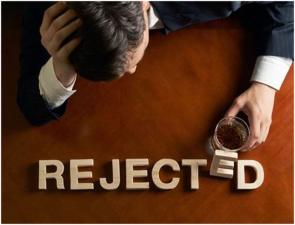Since you (presumably) spend the majority of your time at work, encouragement at work is even more important. Unfortunately, there is not a lot of encouragement in the law firm world. Any encouragement that does exist only comes when an attorney bills a lot of hours, which may lead to a higher bonus and being told they are doing well. An attorney who brings in a lot of business may also be encouraged.

However, when all is said and done, most attorneys tend to receive far more criticism than encouragement. Clients, judges, superiors, and others are always quick to criticize them. The attorney’s bills are seen as too high or not fair, and the clients are not always happy with the results they receive. Because encouragement does not frequently come, many attorneys work under the persistent belief that they are doing something wrong. They get depressed, they withdraw, and they become angry.

|
| Harrison Barnes |
The Impact on Your Life and Family
For attorneys with families, the lack of encouragement at work is often not helped when they get home either. Because the attorney is billing so many hours, hustling to get business, and exhausting themselves physically and mentally, they often do not have a lot of energy—or much else—to give when they return home at the end of the day. Their significant others may be angry that they are not putting effort into the relationship or that they are becoming unpleasant to be around. The only love available may revolve around being able to provide material things and financial contributions—however, this is rarely enough.
See more:
- Lawyer Depression and Anxiety: Why Most Lawyers are Depressed and Anxious Due to Practicing Law
- The Similarities between Human Trafficking and Practicing Law: Why Control and Energy Are So Important to Your Life and Career
- Is there Any Point for Attorneys Working Their Tail Off Inside of Law Firms, Being Abused and Worrying About Career Security?
- How the Billable Hour Makes the Majority of Attorneys Dishonest and Unhappy: The Real Reason Why Most Attorneys' Careers Are Out of Control
- Why Attorneys Who Do Not Make the Attorneys Who Give Them Work Feel Important Can Destroy Their Legal Careers
Life for many attorneys becomes a struggle to be accepted, to try to find reassurance, and to live with the constant feeling that there is not enough encouragement. In an effort to feel good—or perhaps out of a sense of confusion—many attorneys will start getting involved in self-destructive behaviors, including affairs, substance abuse, and more. Attorneys are people and like everyone else, they want to feel good about themselves and crave encouragement. Without encouragement, they feel lost.
Everyone measures themselves against something. When a future attorney is in school, they measure themselves by their grades. When an attorney starts working, they measure themselves with hours billed, bonuses, reviews, becoming a partner, fees collected, the prestige of their law firm, and the prestige of their clients. All of these things are meant to give the attorney encouragement—and the attorney needs to find encouragement in these things to stay motivated. In fact, many people need to find constant encouragement in the world to stay motivated, no matter what they do for a living.
See similar:
- 25 Reasons Most Attorneys Hate the Practice of Law and Go Crazy (and What to Do about It)
- Another Big Law Attorney I Know Just Died Young
- Why Lawyers Are No Longer as Interested in Becoming Partners Anymore
Find People Who Encourage You
One of the greatest keys to being happy and successful in your career and life is surrounding yourself with people who encourage you and bring out the best in you. Organizations can encourage and bring out the best in you. Individual people can encourage and bring out the best in you. Conversely, the wrong organization or person can bring out the worst in you. Being constantly reminded of how we fail to measure up to someone’s expectations or an organization’s view of us can be soul-crushing on many levels.
I know a man who was in a very unhappy marriage for several years. His wife was from a very wealthy background, and he was not. She did not work and had few skills to speak of. Nevertheless, she constantly told him that he did not make enough money, that her father was more successful than him, and frequently brought up his past mistakes. On top of all of this, she was very social and spent most of her time running around and associating with people he did not like. Her friends were high-society types who regularly went to big parties with famous people, which made him uncomfortable. She constantly chastised him for not being part of her social groups, among other things. Nevertheless, he was paying for her social lifestyle and working long hours and sacrificing to do so.
During the marriage, he understandably became extremely depressed. He would wake up every morning, and one remark or another would be made about his shortcomings. He would hear about various mistakes she thought he had made throughout the day and she would frequently be angry. She would tell him stories about how many of their friends were having affairs because “their husbands did not treat them right” and there was always a threat that she would do the same to him. She spent her days talking to her various friends about how bad her marriage was and how bad her husband was—conversations that he would often overhear.
This constant criticism and lack of appreciation caused him many issues. He got sick. He drank too much. He sat around on the couch at night watching television and avoiding his wife. He was in a lot of pain. Eventually his wife did have an affair and decided to divorce him.
The most incredible thing happened to him as he was getting divorced, however. His depression, sickness, drinking, and everything else went away. Over the course of several months—despite being sued by his wife for divorce—he got better. He met new people who thought highly of him and recognized his value. He became much happier and started going out, meeting new people, and everything changed. He even got better at his job. It turns out that he was extremely successful and had a ton to offer the world. He was just around someone who did not appreciate his value.
After his wife filed for divorce, her affair was quickly over. Without someone to criticize all the time, she became incredibly depressed herself. Criticizing her husband had been a form of therapy for her all along—something she used to feel good about herself. She started taking antidepressants, going on retreats, and going to therapy several times a week in an attempt to feel better. She had seemed happy when she had someone to criticize all the time—but when that outlet was removed, she had to take a hard look at herself and her own actions. When we are critical of others, it is often a way for us to feel good about ourselves rather than look at our own shortcomings.
I had never seen someone transition like this to such a degree. When someone is in an unhappy marriage and surrounded by people who are putting them down all the time, the person is bound to feel depressed. No one wants to live in an environment where they are put down, attacked, and criticized all the time. When we feel unappreciated, we have to look for ways to make us feel good about ourselves.
What the man did wrong was not taking control of his life sooner. One of the reasons why he was so miserable was because he felt like the problem was outside of his control—he had children and believed that getting divorced was unthinkable. No matter what sort of changes he made, he thought there was no way to stop the criticism in his life. He felt trapped in an environment where someone just saw the worst in him all the time, pointed out his faults, and did not appreciate any of the good things he was doing in his life or for her. Feeling trapped—especially with someone who only sees the worst in us—is one of the most horrible feelings a person can have.
See Also:
- Surround Yourself with Positive People
- Appreciate Those around You
- The Quality of Your Life and Career Is the Result of Your Habits
An Attorney’s Perspective
This brings me back to being an attorney, working in a law firm, and how attorneys deal with the pervasive lack of encouragement and negative feedback at work. Many attorneys are in law firm positions they do not enjoy and which are very stressful for them. They work closely with clients and others who are critical and do not encourage them. Law firms also send out mixed signals of encouragement, and attorneys often do not know where they stand. Without encouragement or anyone in their corner, an attorney may start going through the same situation my friend went through—becoming extremely depressed and feeling stuck.
See also:
- Quick and Easy Stress Management Techniques for Attorneys
- Talk Straight if You Want to Handle Stress in Law Firm Offices
- Are You Unhappy as a Lawyer? You May Be Buying into the Wrong Narrative
Why would an attorney feel stuck? Attorneys often feel stuck because of the fact that they may be around people who do not appreciate them, but there is nothing they can do. They may be in a position where they need to make money to pay for student loans, car payments, mortgages, children, and more. The longer an attorney has practiced law, the more likely they are to have all sorts of obligations that trap them into staying with law and working in an environment where they feel unappreciated.
One of the most insidious characteristics of attorneys who feel trapped is that many of them feel that way because they are concerned about what others think of them. Young attorneys especially are very cognizant of the prestige of working in a certain type of law firm, in a major market, and so forth. These attorneys care more about how others see them than how appreciated they are. They would rather be unhappy and unappreciated than risk looking less successful in the eyes of other attorneys. How they appear to others is very important to many attorneys, which is dangerous in all respects.
If you are afraid of what others think of you, it is likely that you fear your own negative thoughts (“I’m not a good attorney” or “I’m not good enough to work in a major firm”) being reflected back to you by others. We don’t want the same things that we fear about ourselves being talked about by the people we work with.
I recently fired an attorney. She was an older woman who walked into my office one day and stated right out of the blue that she would like to work for me and represent me. She had a good resume and good experience, so I decided to take a chance on her. She had been in-house for the past fifteen years, but had done work that made it appear as if she was capable of doing the job.
Within a short period of time, I realized that she did not have the skills to do much of anything. Her writing was poor. She did not have strong legal analysis skills. She did not have a good understanding of legal concepts. Her work was littered with formatting errors, missed legal conclusions, and more. In short, it was a complete disaster—I cannot even believe this person was an attorney.
I waited for a brief time for her to improve because I could not believe that someone with her background could be so “rusty” with her legal skills. It quickly became apparent that she just did not have the skills to be good at her job. I gave her the worst possible feedback I could, and she must have felt terrible realizing what a bad attorney I thought she was. I was not alone. Everyone she dealt with both inside and outside of the company thought she was terrible. It was so bad that I decided to have her work on nothing was better than having her do anything at all. Literally, everything this woman touched turned out worse than before she did it. She was a liability and should not be practicing law.
See: Why Your Attorney Mind Self Sabotages Your Life and Career
I have a big heart and I like to help people—but even my heart has limits! This woman did not deserve any kind of encouragement whatsoever and should be doing something else. Maybe just looking busy can work for 15 years in large corporations, but it did not work with me. Had I allowed her to stay here, I would have undermined her confidence and belief in her abilities several times a day, and she might have lost her marbles as a consequence.
Chances are that you are getting more encouragement in your position than this woman did—but you may not be. This woman should have quit before she was fired and realized she was in over her head.
If you are not getting any encouragement in your job and feel undermined, criticized, and put down all the time—you should find an environment that encourages you and makes you feel good about yourself. Everyone deserves to have people in their lives who believe in them.
Finding Happiness
One of the reasons I like being a legal recruiter and even writing articles like this is that I have the opportunity to encourage people, and I believe in them. When a good legal recruiter sees the best in you, it can make a profound difference in your life and career. I believe in all of my candidates and help them succeed at a level that exceeds what most of them could do on their own. I make a point to tell them everything they are doing right. I see their strengths and bring them out when I communicate with law firms on their behalf. Because I believe in my candidates—and ultimately, they begin to believe in themselves—they go further and achieve more.
See also:
- The Only Way to Be Happy Practicing Law: How to Immediately Find Happiness Practicing Law
- How to Not Fail, Die or Go Crazy Practicing Law: How I've Seen Attorneys Find Enjoyment and Satisfaction in the Legal Profession
- Concentrate on the Positive, Not the Negative
I have worked in the personal development world for many years. One of the things that most personal development people teach is that we are responsible for everything that happens in our lives. If you are in a job or relationship that you hate, you have the ability to change it. The man I know who was in an abusive relationship should have divorced his wife sooner. An attorney who is in a job that does not work for them, where they are continually put down and criticized, should be doing something else.
We choose how we react to whatever happens to us. We can either be unhappy and miserable, or we can be happy. If you are around people who do not appreciate you and constantly give you negative feedback, you are going to be unhappy.
One of the most important things that we can do is to make sure we put ourselves in environments that encourage us and do not push us down all the time. While all success is based on sacrifice, working hard, improving, and weathering storms, there are a lot of toxic environments out there—and certain law firms are more toxic than others. If you are in a bad situation and do not see it changing any time soon, it is within your control to leave and do something else. And you should—you will never be happy until you make a change.
The reason that so many attorneys do not leave situations and people who make them unhappy is because doing so threatens their identity. If our identity is wrapped up in being married to a certain person or working in a certain law firm, we will avoid changing because it threatens how we view ourselves. We want to see ourselves as a certain type of person, and we take comfort in it.
My plea to you is that you work with people who encourage and bring out the best in you. Find relationships that bring out the best in you and make you happy. If you do not feel encouraged in whatever you are doing, make a change—and make it now.
See more articles:
- Plant Yourself in Good Soil
- Be Content and Happy with Where You Are
- Remain Calm
- Plan for Success-Not Failure
About Harrison Barnes
No legal recruiter in the United States has placed more attorneys at top law firms across every practice area than Harrison Barnes. His unmatched expertise, industry connections, and proven placement strategies have made him the most influential legal career advisor for attorneys seeking success in Big Law, elite boutiques, mid-sized firms, small firms, firms in the largest and smallest markets, and in over 350 separate practice areas.
A Reach Unlike Any Other Legal Recruiter
Most legal recruiters focus only on placing attorneys in large markets or specific practice areas, but Harrison places attorneys at all levels, in all practice areas, and in all locations-from the most prestigious firms in New York, Los Angeles, and Washington, D.C., to small and mid-sized firms in rural markets. Every week, he successfully places attorneys not only in high-demand practice areas like corporate and litigation but also in niche and less commonly recruited areas such as:
- Immigration Law
- Workers Compensation
- Insurance
- Family Law
- Trust and Estate
- Municipal law
- And many more...
This breadth of placements is unheard of in the legal recruiting industry and is a testament to his extraordinary ability to connect attorneys with the right firms, regardless of market size or practice area.
Proven Success at All Levels
With over 25 years of experience, Harrison has successfully placed attorneys at over 1,000 law firms, including:
- Top Am Law 100 firms such including Sullivan and Cromwell, and almost every AmLaw 100 and AmLaw 200 law firm.
- Elite boutique firms with specialized practices
- Mid-sized firms looking to expand their practice areas
- Growing firms in small and rural markets
He has also placed hundreds of law firm partners and has worked on firm and practice area mergers, helping law firms strategically grow their teams.
Unmatched Commitment to Attorney Success - The Story of BCG Attorney Search
Harrison Barnes is not just the most effective legal recruiter in the country, he is also the founder of BCG Attorney Search, a recruiting powerhouse that has helped thousands of attorneys transform their careers. His vision for BCG goes beyond just job placement; it is built on a mission to provide attorneys with opportunities they would never have access to otherwise. Unlike traditional recruiting firms, BCG Attorney Search operates as a career partner, not just a placement service. The firm's unparalleled resources, including a team of over 150 employees, enable it to offer customized job searches, direct outreach to firms, and market intelligence that no other legal recruiting service provides. Attorneys working with Harrison and BCG gain access to hidden opportunities, real-time insights on firm hiring trends, and guidance from a team that truly understands the legal market. You can read more about how BCG Attorney Search revolutionizes legal recruiting here: The Story of BCG Attorney Search and What We Do for You.
The Most Trusted Career Advisor for Attorneys
Harrison's legal career insights are the most widely followed in the profession.
- His articles on BCG Search alone are read by over 150,000 attorneys per month, making his guidance the most sought-after in the legal field. Read his latest insights here.
- He has conducted hundreds of hours of career development webinars, available here: Harrison Barnes Webinar Replays.
- His placement success is unmatched-see examples here: Harrison Barnes' Attorney Placements.
- He has created numerous comprehensive career development courses, including BigLaw Breakthrough, designed to help attorneys land positions at elite law firms.
Submit Your Resume to Work with Harrison Barnes
If you are serious about advancing your legal career and want access to the most sought-after law firm opportunities, Harrison Barnes is the most powerful recruiter to have on your side.
Submit your resume today to start working with him: Submit Resume Here
With an unmatched track record of success, a vast team of over 150 dedicated employees, and a reach into every market and practice area, Harrison Barnes is the recruiter who makes career transformations happen and has the talent and resources behind him to make this happen.
A Relentless Commitment to Attorney Success
Unlike most recruiters who work with only a narrow subset of attorneys, Harrison Barnes works with lawyers at all stages of their careers, from junior associates to senior partners, in every practice area imaginable. His placements are not limited to only those with "elite" credentials-he has helped thousands of attorneys, including those who thought it was impossible to move firms, find their next great opportunity.
Harrison's work is backed by a team of over 150 professionals who work around the clock to uncover hidden job opportunities at law firms across the country. His team:
- Finds and creates job openings that aren't publicly listed, giving attorneys access to exclusive opportunities.
- Works closely with candidates to ensure their resumes and applications stand out.
- Provides ongoing guidance and career coaching to help attorneys navigate interviews, negotiations, and transitions successfully.
This level of dedicated support is unmatched in the legal recruiting industry.
A Legal Recruiter Who Changes Lives
Harrison believes that every attorney-no matter their background, law school, or previous experience-has the potential to find success in the right law firm environment. Many attorneys come to him feeling stuck in their careers, underpaid, or unsure of their next steps. Through his unique ability to identify the right opportunities, he helps attorneys transform their careers in ways they never thought possible.
He has worked with:
- Attorneys making below-market salaries who went on to double or triple their earnings at new firms.
- Senior attorneys who believed they were "too experienced" to make a move and found better roles with firms eager for their expertise.
- Attorneys in small or remote markets who assumed they had no options-only to be placed at strong firms they never knew existed.
- Partners looking for a better platform or more autonomy who successfully transitioned to firms where they could grow their practice.
For attorneys who think their options are limited, Harrison Barnes has proven time and time again that opportunities exist-often in places they never expected.
Submit Your Resume Today - Start Your Career Transformation
If you want to explore new career opportunities, Harrison Barnes and BCG Attorney Search are your best resources. Whether you are looking for a BigLaw position, a boutique firm, or a move to a better work environment, Harrison's expertise will help you take control of your future.
Submit Your Resume Here to get started with Harrison Barnes today.
Harrison's reach, experience, and proven results make him the best legal recruiter in the industry. Don't settle for an average recruiter-work with the one who has changed the careers of thousands of attorneys and can do the same for you.
About BCG Attorney Search
BCG Attorney Search matches attorneys and law firms with unparalleled expertise and drive, while achieving results. Known globally for its success in locating and placing attorneys in law firms of all sizes, BCG Attorney Search has placed thousands of attorneys in law firms in thousands of different law firms around the country. Unlike other legal placement firms, BCG Attorney Search brings massive resources of over 150 employees to its placement efforts locating positions and opportunities its competitors simply cannot. Every legal recruiter at BCG Attorney Search is a former successful attorney who attended a top law school, worked in top law firms and brought massive drive and commitment to their work. BCG Attorney Search legal recruiters take your legal career seriously and understand attorneys. For more information, please visit www.BCGSearch.com.
Harrison Barnes does a weekly free webinar with live Q&A for attorneys and law students each Wednesday at 10:00 am PST. You can attend anonymously and ask questions about your career, this article, or any other legal career-related topics. You can sign up for the weekly webinar here: Register on Zoom
Harrison also does a weekly free webinar with live Q&A for law firms, companies, and others who hire attorneys each Wednesday at 10:00 am PST. You can sign up for the weekly webinar here: Register on Zoom
You can browse a list of past webinars here: Webinar Replays
You can also listen to Harrison Barnes Podcasts here: Attorney Career Advice Podcasts
You can also read Harrison Barnes' articles and books here: Harrison's Perspectives
Harrison Barnes is the legal profession's mentor and may be the only person in your legal career who will tell you why you are not reaching your full potential and what you really need to do to grow as an attorney--regardless of how much it hurts. If you prefer truth to stagnation, growth to comfort, and actionable ideas instead of fluffy concepts, you and Harrison will get along just fine. If, however, you want to stay where you are, talk about your past successes, and feel comfortable, Harrison is not for you.
Truly great mentors are like parents, doctors, therapists, spiritual figures, and others because in order to help you they need to expose you to pain and expose your weaknesses. But suppose you act on the advice and pain created by a mentor. In that case, you will become better: a better attorney, better employees, a better boss, know where you are going, and appreciate where you have been--you will hopefully also become a happier and better person. As you learn from Harrison, he hopes he will become your mentor.
To read more career and life advice articles visit Harrison's personal blog.






